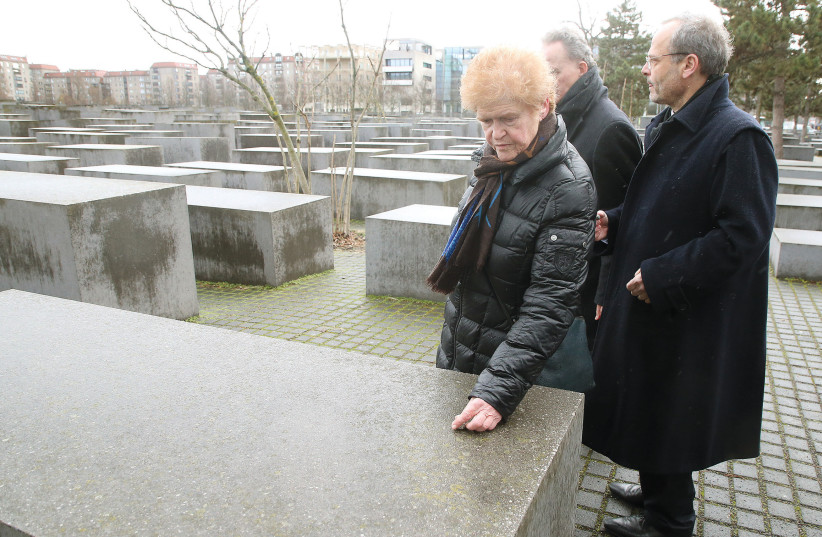The government will approve establishing a committee that will tackle the commemoration of Jews in the Diaspora who were killed in antisemitic terrorist attacks.
Some of the initiatives include the establishment of a memorial site for Diaspora Jews and an accessible database with information on the victims.
According to a proposed resolution expected to be approved in Sunday’s cabinet meeting, obtained by The Jerusalem Post, “in view of the Israeli government’s recognition of the need and moral obligation to commemorate Diaspora Jews, [who are not citizens of Israel,] who were murdered because of their Jewishness in hostilities on an antisemitic basis in the Diaspora,” and “in order to promote this commemoration,” the government will decide to “establish a special joint committee with the Israeli government and the national institutions; whose mission is to suggest recommendations regarding activities for the state commemoration” of Diaspora Jews.
What will the committee be discussing?
The committee will submit its conclusions to Diaspora Affairs and Combating Antisemitism Minister Amichai Chikli no later than September 1. The committee’s responsibility will be to examine and make recommendations, based on the criteria and standards for commemoration. It will also examine the commemoration of non-Jewish victims.
Another issue that the committee will discuss is the establishment of an official state ceremony to commemorate these Diaspora victims during Remembrance Day. One suggestion is to establish a dedicated state monument, as well as to create a website with information about those who were killed in the Diaspora and to regulate “educational activities in the IDF and in the formal and informal education systems in Israel to commemorate Jews who were killed in the Diaspora.”

The committee will comprise members of the government and national institutions, headed by Avi Cohen Scali, director-general of the Diaspora Affairs Ministry.
Chikli said that “hostile attacks frequently afflict our people” in Israel and in the Diaspora, adding that “recently, Lucy Dee and her two daughters, Rina and Maia, were murdered in the Jordan Valley for only one reason: they were Jewish and part of the nation of Israel.”
He added that “this is the reason for which Sara Halimi was murdered with shocking cruelty in Paris and 11 Jews were killed in a Pittsburgh synagogue during prayer services.” The minister said that “recognizing the victims of antisemitic violence as part of Israel’s ‘Victims of Hostilities’ commemorations is an important and necessary step, that fulfills the state’s commitment to the Nationality Law, which states that ‘the state will strive to ensure the safety of the members of the Jewish people and of its citizens who are subject to hardship and captivity because of their Jewishness.’”
Shira Ruderman, CEO of the Ruderman Family Foundation, who introduced the outline for the initiative, said in a statement that “this is a historic day for the Jewish people and the State of Israel. We welcome the government’s decision to act for the commemoration of Diaspora Jews who were murdered for their Jewishness. We had the privilege of initiating and promoting this important step, together with the World Zionist Organization and the Diaspora Affairs Ministry. With this decision, the State of Israel proved, without a doubt, that it is the state of the Jewish people and that only through our unity as a people and through the mutual guarantee between us, can we ensure our security and prosperity.”
Last year, WZO chairman Yaakov Hagoel sent a letter to then-prime minister Naftali Bennett, urging him to recognize victims of antisemitic terrorist attacks in the Diaspora. He wrote that “this bloody connection is loud and clear – but Israel has not yet learned to remember its people who were killed in antisemitic attacks in the Diaspora.”
Hagoel said on Sunday that he “initiated the move about a year ago after I met with bereaved families from the Diaspora and felt their great pain.” Hagoel congratulated Chikli, the government “and our partners for promoting this important and Zionist decision. This is an important and necessary step for a nation and a country that has struggled with antisemitism since its inception.”
